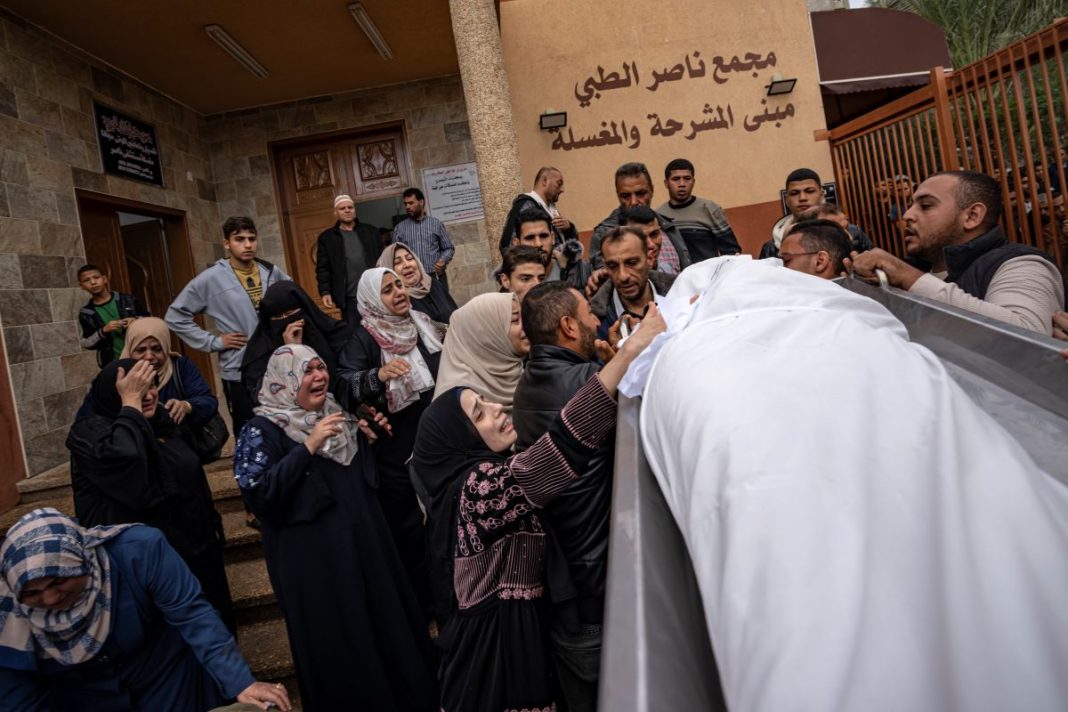More than 300 health sector workers, 86 journalists, 135 employees of the United Nations Relief and Works Agency for Palestine Refugees in the Near East and approximately 35 civil defense crews are included in the death toll, the ministry said.
The ministry added that more than 51,100 people have been reportedly wounded, with scores of other people unaccounted for.
The ministry went on to say in its report that only eight out of 36 hospitals are partially functional in the enclave, and that occupancy rates have soared to 206% in inpatient departments and 250% in intensive care units.
As of last week (December 10), the Israel Defense Forces stated it had struck over 22,000 targets in Gaza since Hamas’ attack on Israel on October 7.
About 45,000 pregnant women and 68,000 breastfeeding women in the Gaza Strip face the risk of anaemia, bleeding and death.
In a post on X, the United Nations Population Fund said pregnant and lactating women are facing “severe food shortages” because of Israel’s siege and attacks.
“The severe food shortage in Gaza exposes pregnant and breastfeeding women to the risk of anaemia, preeclampsia, bleeding, and even death,” the post added.
In an interview with Al Jazeera, head of the UN agency for Palestinian refugees Philippe Lazzarini said he hasn’t seen anything of this scale of disaster before.
“Everything is absolutely unprecedented and staggering,” Lazzarini told diplomatic correspondent James Bays.
“In 40 days, more women and children were killed than the number of civilians in the Ukraine war,” he added.
The UNRWA head went on to say the level of destruction resulted in more than 60 percent of infrastructure being destroyed, and more than 90 percent of the population displaced.
“Conditions are absolutely appalling. The sanitary conditions are terrible [and] there is hardly any clean water.”
